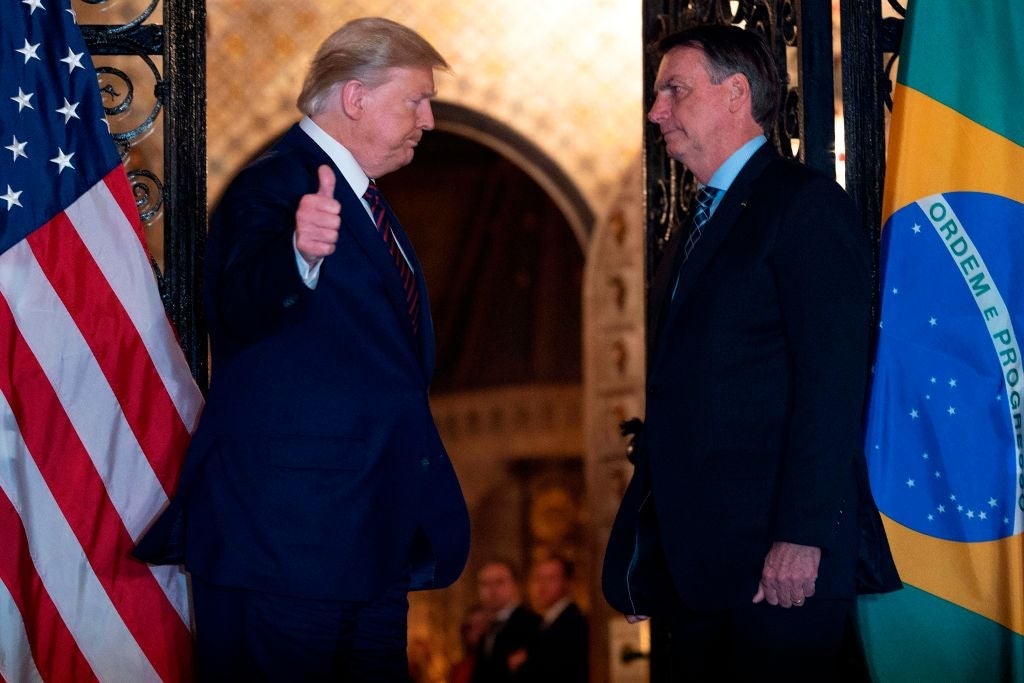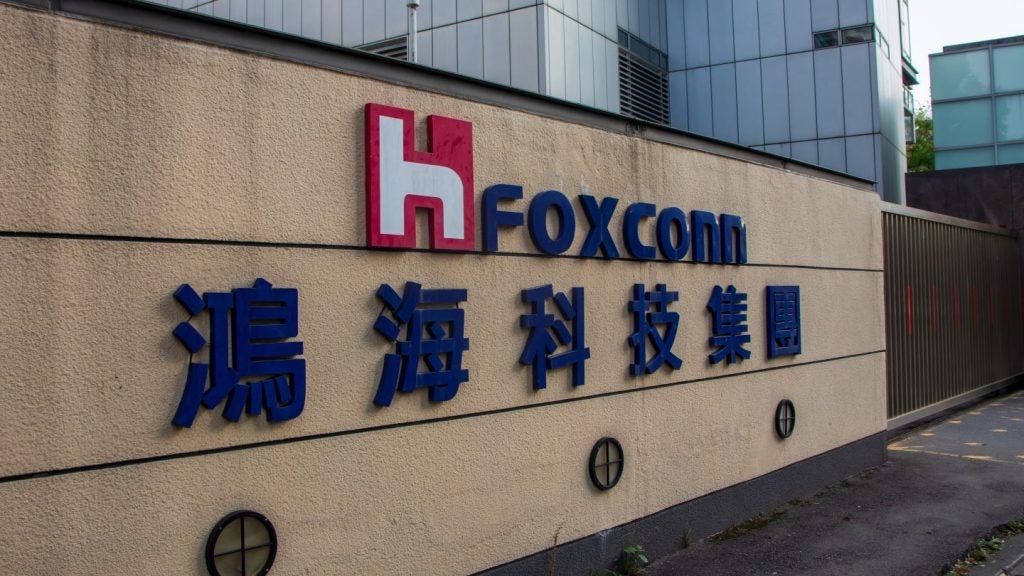

Populists are a diverse political species. Coming in all shapes and sizes, they can be found on the left and right, those broad and elusive categories. Indeed, if one enjoys never-ending conversations, try defining ‘populism’.
As a base line, however, most will agree that populists claim to represent the ‘will of the people’ and oppose the ‘corrupt’ status quo – but this ‘will’ means different things in different contexts. The populism of Donald Trump in the US, Jair Bolsonaro in Brazil, Viktor Orban in Hungary and Andrés Manuel López Obrado, better known as AMLO, in Mexico have notable and unique differences.
Nonetheless, key similarities run through their blend of ideologies: antipathy towards the political-cum-liberal elite of globalisation, those disciples of the rules-based international system. The outcome of this is rising nationalism and geopolitical uncertainty.
For foreign direct investment (FDI), this breed of populism is very bad news. The turn towards protectionism – indeed populism could conceivably turn towards globalisation, should the people ‘will’ it – presents an existential threat to global FDI, which of course thrives in free markets.
Indeed, Trump’s ‘America First’ policies – taking in a slew of trade wars along with the 2017 Tax Cuts and Jobs Act – has stunted FDI worldwide, as have other events tinged with populism, such as Brexit in the UK.
It is no coincidence that, as populism has erupted over the past five years, FDI has taken a beating (see chart below).
How well do you really know your competitors?
Access the most comprehensive Company Profiles on the market, powered by GlobalData. Save hours of research. Gain competitive edge.

Thank you!
Your download email will arrive shortly
Not ready to buy yet? Download a free sample
We are confident about the unique quality of our Company Profiles. However, we want you to make the most beneficial decision for your business, so we offer a free sample that you can download by submitting the below form
By GlobalDataIt might, therefore, seem paradoxical that while the current wave of populism dismantles the world of foreign investment, the aforementioned populist leaders have continued to receive very significant (and often growing) amounts of FDI to their countries (see chart below).
The populism paradox
The US is governed by a populist who has continually rallied against globalisation, yet the country continues to attract huge and steady levels of FDI.
In fact, the US received more FDI in 2019 than ever before (see second chart) and significantly more than any other nation in the world that year.
Investors continue to be drawn by the sheer weight of the US economy and the unrivalled global prowess of the dollar. However, this dominance has also allowed Trump to wield unorthodox power over foreign investors.
“We live in a world that is more and more mercantilist in its outlook than anything else,” says head of political risk at AKE Group Maximilian Hess. “The stronger your geopolitical power, the more protectionist measures you can pursue. That’s the basis of mercantilism, the basis of the early expansion of [colonial] empire.”
This means that the global strength of the US market allows Trump to reap the rewards of globalisation – with regards to both FDI and trade – through weapons that simultaneously destroy globalisation. The irony is not lost on many.
These weapons feature protectionist policies that encourage firms to enter the US to avoid being tariffed, explains Saul Estrin, professor of managerial economics and strategy at the London School of Economics (LSE).
“This may boost FDI, in the short term at least, because businesses feel they need to be selling from within, not exporting to the US and therefore potentially being subject to tariffs,” he adds.
In Brazil, Bolsonaro plays with tariffs in a similar way, but how long until it all goes up in flames? Such paradoxical measures can impoverish globalisation, thereby undermining what made the US and Brazil so powerful in the first place. So will the expression ‘you can’t have your cake and eat it’ ring true for these countries?
Bad news for Bolsonaro?
Harsh reality may already be catching up with Bolsonaro. Mid-2020 saw foreign investors continue to withdraw money en masse from Brazillian stocks and bonds. Commentators in the Financial Times stated that investors fear Bolsonaro as an “agent of economic, political, institutional and health crises himself”.
Covid-19 has catalysed these fears. Indeed, the mismanagement of the pandemic in countries such as Brazil has rehashed the importance of sound institutions, according to professor of economic geography at LSE Riccardo Crescenzi.
“When you have populist government that is less transparent, and then a big shock arrives, your investment is put into jeopardy in a very fundamental way,” he says.
However, the opposite may also be true. In recent years, investors from emerging markets – especially China – have increased their dealings with Brazil, not least due to an affinity with economies where institutions are weaker and politics is murkier, says Estrin.
“They are unlikely to be put off by populist leaders and may indeed prefer them,” he adds.
Reputation is also an important pull factor. Like Trump, Bolsonaro benefited in the early days of his tenure from the perception of being ‘pro-business’, a driver of decreased regulation and tax. This was warmly received by investors.
Mexico’s left-field intervention
In Mexico, on the other hand, AMLO’s left-wing rhetoric was received by investors with trepidation. His nationalisation efforts in the energy sector have indeed deterred significant foreign investment in Mexico’s renewable energy and oil and gas sectors. Nonetheless, Mexico still received a record high number of FDI projects in 2019 (see second chart).
“Businesses invest abroad when they see a profit, not to support or oppose particular national politicians,” says Estrin. “FDI is driven by ‘gravity’, the size of the market. Certain populist leaders can knock the lustre off for a while, but they don’t affect these fundamentals much.”
Indeed, Western companies do not go to China because they support communism, but because the size of the Chinese economy cannot be ignored.
There is also the fact that populist rhetoric is often mere bluster.
“Some populists might seem anti-system and anti-foreigners in their rhetoric to their electorate, but they will then be more pro-business in their dealings with investors,” says Crescenzi.
Orban’s example
Viktor Orban has had fickle and often fraught relations with foreign investors. Nonetheless, Hungary has continued to attract significant sums of FDI under his stewardship.
Since being re-elected as prime minister in 2010, Orban has both discriminated against and lavished attention upon international investors.
On the one hand, the first five years of his rule saw ‘crisis taxes’ imposed on the telecoms, energy, media and financial sectors, and Orban has made it no secret that he hopes to reduce Hungary’s dependence on foreign investment.
Those measures no doubt deterred some foreign investors from coming to Hungary, as reflected in the second chart. However, it is worth noting that cross-border investment to the country never quite recovered from the impact of the 2008 financial crisis.
Despite these headwinds, foreign investors have continued to target Hungary, and in healthy numbers. Although the country lacks the market size ‘gravity’ of the US and Brazil, its economic fundamentals and geographic location have undoubted allure.
Contradictorily, Orban has also done much to incentivise foreign investment to Hungary. Indeed, his unorthodox brand of ‘Orbanomics’ featured the lowest corporate taxes in Europe. Moreover, Hungary’s German-dominated automotive sector has remained extremely open to investors since 2010, comparatively speaking. The industry is the country’s primary source of FDI.
This is no coincidence. In Hungary there is an “oligarchic circle” that operates a more closed system, especially with regards to manufacturing, according to Zsuzsa Szelényi, Richard von Weizsäcker fellow at the Robert Bosch Academy and a former Hungarian MP.
“Since 2012, Orban has made special non-public agreements with most large foreign investors to Hungary,” she adds. “For example, if a German automotive company comes here, they employ Hungarian subcontractors from Orban’s oligarchy, in return for [financial concessions].”
This is just one of many accusations pointed at Hungary, as reported by Transparency International and North Carolina’s Civitas Institute.
“Nothing is in Orban’s name; this is his speciality,” adds Szelényi. “So while there is often no proof, there is systemic logic, like when there is no real competition in the public tenders for subcontracting.
“Big investors turn a blind eye. Making money is the top priority and everything is done legally, under non-public state agreements.”
But by participating in this and supporting Orban, foreign companies endanger the EU’s unity and free market, the forces to which they owe their success, says Szelényi.
Germany and Austria are by far the leading foreign investors in Hungary’s automotive industry. The country’s top export is vehicle parts, and Germany is the top buyer.
Szelényi believes that most foreign investors in the world prefer more transparent democratic environments. “But many just don’t mind not having that, and that’s bad enough,” she says.
Part of the problem is that it is not yet clear whether the current crop of populist leaders are anti-democratic, or merely debasers of democracy, as Estrin puts it.
Whether they take such matters into consideration or not, foreign investors are presented with a disquieting moral gamble. By investing in countries run by many of today’s populists, they may well be facilitating their own demise, or worse.






